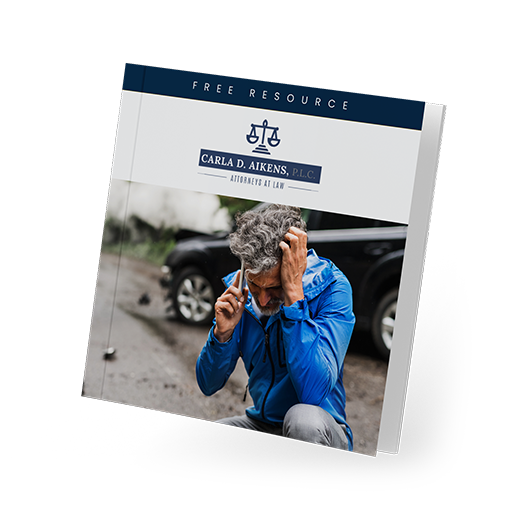It’s common to feel like the reason for your termination was wrongful. Those who work hard, and put in the effort day after day, deserve to feel secure in their position. Unfortunately, this isn’t always the case. Employers will sometimes terminate an employee in a discriminatory manner, and when they do, it’s not just wrong - it's also illegal. What Is At-Will Employment? Crucial to the understanding of wrongful Read More
How Will Multiple Defendants or Causes Affect My Personal Injury Case?
Personal injury cases can quickly become complicated when multiple parties are involved. Thankfully, Michigan law has procedures in place that dictate how these cases are handled. Although dealing with multiple defendants can understandably become stressful for a victim of an injury, a qualified attorney can navigate the law surrounding these cases in a similar manner to a regular personal injury case. In cases of Read More
Insurance Companies May Retroactively Cancel Your Policy
Some policyholders may find that instead of receiving the benefits of their insurance policy claim, they receive a full refund of their premiums paid - but while a full refund sounds great, it comes at the cost of your policy. Instead of paying out claims, insurance companies may decide to rescind the policy itself. This eliminates the obligations of the insurance company and your chances of receiving your claim, Read More
PIP: The Benefits You Didn’t Even Know You Had
Personal Injury Protection, or PIP, benefits are a form of benefits granted and guaranteed to you by the Michigan No-Fault Act. Because every driver is required to have insurance for their vehicle, everyone on the road in Michigan - even those who don't have cars of their own - can benefit from PIP benefits. Unfortunately, most people aren’t aware of the fact that they even have this very useful resource available to Read More
Sign This Or Else: Dealing With Employment Agreements That Cut Off Your Rights
The statute of limitations in employment cases limits the amount of time an employee has to bring a claim against their employer, and in recent years, it has been shortened through various methods. More frequently, we’re seeing employment contracts that include a shorter statute of limitations than the time allowed by other laws in the state and forced arbitration agreements that prevent employees from taking legal Read More
Am I Forced to Arbitrate?
The United States Arbitration Act (commonly referred to as the Federal Arbitration Act, or FAA) was enacted in 1925 and provided the ability for courts to oversee private disputes. This includes binding arbitration, where the parties are legally forced to settle through arbitration. When Does the FAA Apply? The text of the Federal Arbitration Act specifies that an arbitration agreement is applicable if the agreement Read More
If the DOL is There, Why Do You Need a Wage Claim Lawyer?
You’ve always loved your job. That has never changed, even after a new owner came in after Thanksgiving and made some changes you didn’t like. Some people quit, but not you. You pressed on and even worked 65-hour workweeks during the last two weeks of December to make up for the personnel shortage. Now you’re looking at your paycheck, which states that you worked 40 hours per week, not 65. When you ask about it, Read More
An Aesop Fable Might Help You in Your Employment Law Claim
The cat’s paw legal theory has helped numerous employees prevail in court after being unjustly terminated. To understand how and why courts have found in favor of employees due to the cat’s paw theory, you need to know the moral of the story behind “The Monkey and the Cat,” an adapted Aesop fable. The Story of the Monkey and the Cat A monkey and cat are sitting around a fire in the process of roasting chestnuts. The Read More
What is Employer-Mandated Arbitration?
Federal and state anti-discrimination laws allow employees who have been discriminated against at work to have their day in court. The underlying principle is that employees who have been treated poorly because of their membership in a protected class (race, age, ethnicity, or religion, to give a few examples) should be able to use legal action to get justice. Unfortunately, employees are not always guaranteed their Read More
Who Is Liable For Discrimination—the Staffing Agency or the Actual Company?
More companies these days are turning over the logistics of hiring and onboarding new talent to staffing agencies. Employers enjoy many benefits from using staffing and temp agencies, while workers often experience a state of limbo before getting hired full-time. During this “probationary” period, workers have the opportunity to settle in while employers can evaluate the worker’s performance and choose not to hire Read More















